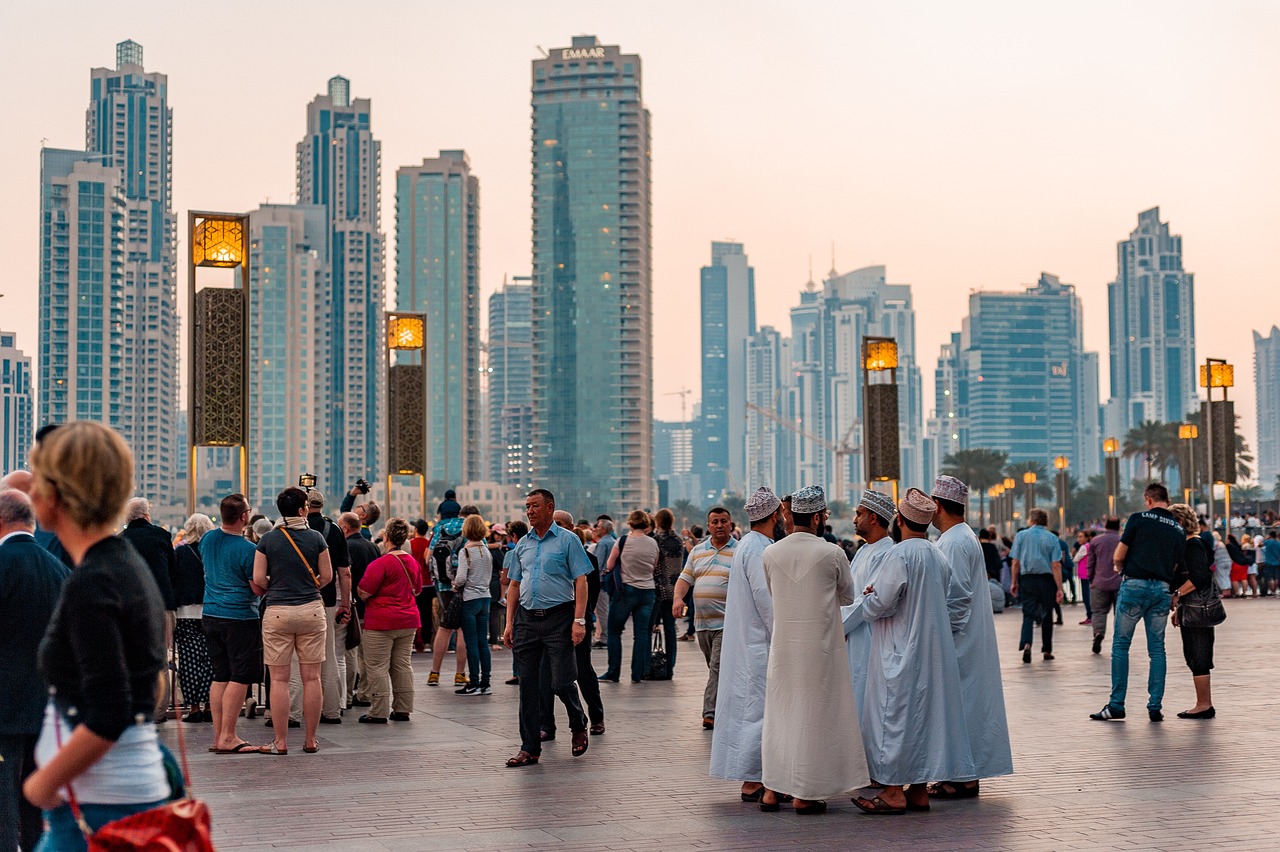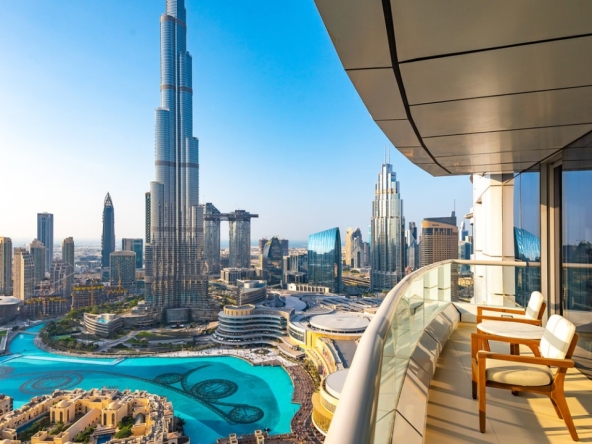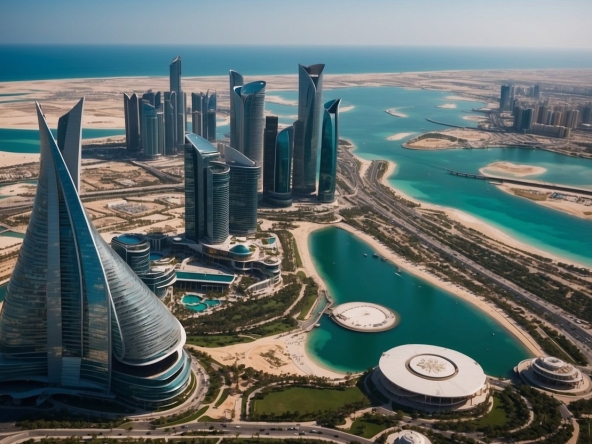Dubai, with its stunning skyline and luxurious lifestyle, has become a magnet for property buyers from around the world. As an expatriate, investing in Dubai’s real estate market offers a unique opportunity to own a piece of this vibrant city. However, navigating the process of buying property as an expat can be daunting. In this comprehensive guide, we will explore the eligibility requirements, key considerations, and step-by-step process for expats looking to invest in Dubai real estate.
Eligibility: Can Expats Own Property in Dubai?
Dubai has opened its doors to foreign investors, allowing expatriates to own property in designated freehold areas. In 2002, the Dubai government introduced the concept of a 99-year property lease for expatriates. This was a revolutionary step towards attracting foreign investment. In 2006, the landscape changed even further when freehold ownership became a reality for foreigners in specific areas.
Choosing the Right Property: Key Locations and Types
Dubai offers a wide range of properties to suit every budget and preference. Key locations such as Dubai Marina, Palm Jumeirah, and Jumeirah Hills are popular choices for expat buyers. Dubai Marina, known for its luxury high-rise apartments and stunning views of the Persian Gulf, offers a modern and vibrant lifestyle. Palm Jumeirah, an iconic man-made archipelago, boasts posh apartments and sprawling villas. Jumeirah Hills, adjacent to the Emirates Golf Club, provides a peaceful yet luxurious living experience.
In terms of property types, Dubai caters to every dream and every pocket. From single-bedroom apartments to luxurious 7-bedroom villas, there is something for everyone in this vibrant city.

Understanding Property Rights: Freehold vs. Leasehold
It is essential for expat buyers to understand the distinction between freehold and leasehold properties in Dubai. Freehold properties allow expats to have complete ownership rights in designated areas. This means that the property is yours indefinitely. On the other hand, leasehold properties allow expats to lease a property from the original owner for a specific period, typically ranging from 10 to 99 years. Once the lease expires, ownership reverts back to the original owner.
Financing Your Purchase: Mortgage Options and Requirements
Getting a mortgage in Dubai as an expat is relatively straightforward. Several banks offer financing options for expatriates, allowing them to secure up to 75% of the property’s value. It is crucial to have all the necessary documentation in order, including proof of income and a valid passport. Interest rates can vary, so it is worth shopping around for the best mortgage option that suits your needs.
Legal Processes and Documentation
Buying property in Dubai is a well-regulated and transparent process. Here are the key steps involved:
- Agreement: Once you have chosen your property, you will sign a Memorandum of Understanding (MoU) with the seller, outlining the terms of the sale.
- Deposit: Typically, a 10% deposit is required at this stage.
- No Objection Certificate (NOC): The developer must issue an NOC, ensuring that there are no outstanding dues on the property.
- Final Sale: The final sale takes place either at the developer’s office (for off-plan properties) or at the Dubai Land Department for existing properties. The title deed is then transferred to the buyer.
Hiring a local lawyer can help streamline the process and ensure that all legal nuances are taken care of.

Property Maintenance and Additional Costs
When owning a property in Dubai, it is essential to consider not only the initial buying cost but also the ongoing maintenance and additional expenses. Here are some key costs to keep in mind:
- Service Charges: Most properties in Dubai, especially apartments and villas in gated communities, come with service charges. These fees cover communal area maintenance, security, waste management, and other services.
- Utilities: DEWA (Dubai Electricity and Water Authority) provides electricity and water services in Dubai. As a property owner, you would be responsible for setting up and maintaining your DEWA account.
- Property Insurance: While not mandatory, property insurance is highly recommended to protect your investment from unforeseen circumstances.
- Home Improvements: As a property owner, you may want to invest in home improvements or renovations. Ensure you obtain the necessary permissions from relevant authorities before making any significant changes.
Selling and Renting Your Property
If you decide to sell your property, it is essential to understand the local real estate market dynamics. Prices can fluctuate based on various factors, including global economic trends and local policy changes. When renting out your property, be aware of the rental laws in Dubai. The Real Estate Regulatory Authority (RERA) sets rental increase caps, and it is crucial to draft a comprehensive rental contract to protect both parties. If you live outside Dubai but own property in the city, considering a property management service can be beneficial to handle tenant issues and property maintenance.
A Snapshot of Dubai’s Real Estate in 2023
Dubai’s real estate market has witnessed a surge in property prices in recent years. In 2023, property values saw a healthy ascent of approximately 7.5%. Areas like Jumeirah and Downtown Dubai have led the charge with increased demand for luxury villas and houses. The Expo 2020, postponed to 2021 due to the pandemic, has also had a lasting positive effect on the real estate domain, driving international interest and investment into the region. Dubai’s progressive regulations, including long-term visas for investors and retirement visa options, have further fueled the property market’s growth.

Conclusion
Investing in Dubai’s real estate market as an expat offers a unique opportunity to own property in a vibrant and dynamic city. With its diverse range of properties, favorable market conditions, and attractive lifestyle, Dubai continues to attract global investors. By understanding the eligibility requirements, legal processes, and key considerations, expat buyers can navigate the Dubai property market successfully. As you embark on this journey, arm yourself with knowledge, seek expert advice when needed, and let the allure of Dubai’s real estate market guide you towards a successful investment.



